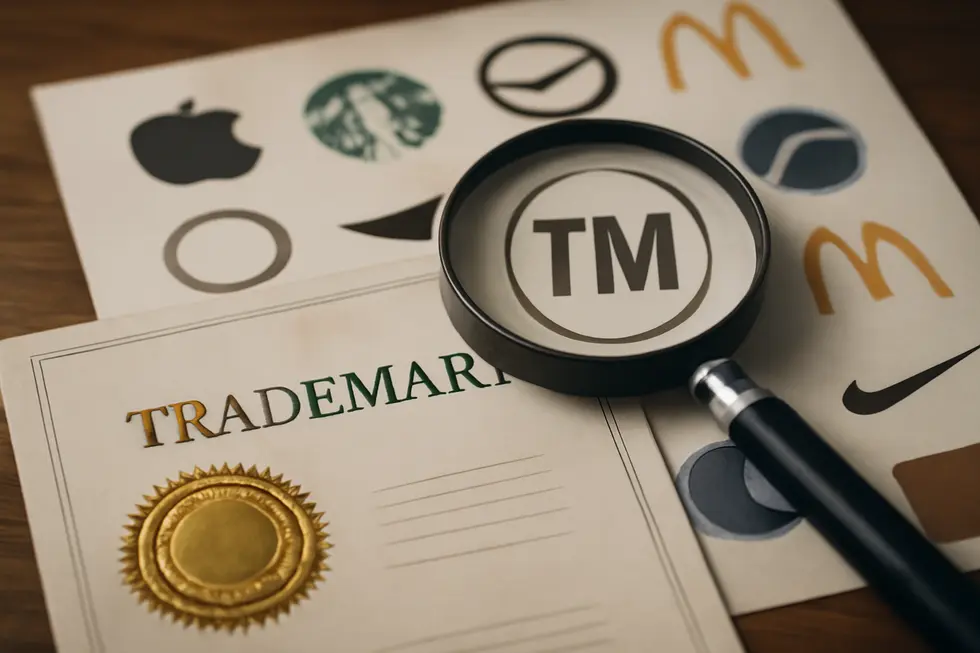Introduction
Selecting a company name is one of the first and most essential decisions a business owner makes. But can you have the same company name as someone else? This question touches on important legal and branding issues that affect your company’s identity and protection. The answer isn’t always straightforward—it depends on registration laws, trademark rights, and practical business considerations. This guide explores these dimensions carefully. The first chapter explains the legal restrictions around company name registration and why jurisdictions enforce uniqueness. Next, we delve into how trademark law influences brand name usage and the different scope of protection it provides. Finally, we walk through practical steps for selecting a company name, covering registry searches and trademark planning to secure your business identity from the start. Together, these chapters offer a comprehensive understanding of naming your company without legal conflict while maximizing brand security.
Tables of Contents
Chapter 1: Can you have the same company name as someone else: Legal Restrictions in Company Name Registration
- Navigating Jurisdictional and State-Level Rules on Company Name Uniqueness
- Trademark Law’s Crucial Role in Protecting Company Names Beyond State Registration
- Navigating Legal Company Names and Assumed Business Names: What You Can and Cannot Share
Chapter 2: Navigating Trademark Law to Understand Brand Name Usage and Conflicts
- Trademark Exclusivity and Legal Rights: When Can Two Companies Share the Same Name?
- Navigating State Registration and Trademark Law: Why Identical Company Names Are Rarely Allowed Across Jurisdictions
- The Legal Risks and Consumer Confusion Dangers of Sharing Company Names under Trademark Law
Chapter 3: Can you have the same company name as someone else: Practical Steps and Considerations for Name Selection
- Navigating Legal Boundaries: Unique Company Name Requirements and Compliance Essentials
- Navigating Trademark and Intellectual Property Risks When Choosing Your Company Name
- Effective Name Availability Research: Navigating Legal and Market Checks to Secure Your Company Identity
Chapter 1: Can you have the same company name as someone else: Legal Restrictions in Company Name Registration

1. Navigating Jurisdictional and State-Level Rules on Company Name Uniqueness
When registering a company, one crucial legal obstacle is the necessity for your business name to be unique within the jurisdiction or state where you intend to operate. State-level business registries strictly enforce this rule by rejecting applications for company names that are identical or deceptively similar to already registered entities. This prohibition aims to prevent consumer confusion and maintain clear distinctions between legal entities for regulatory and commercial clarity.
Each state has its own business name database, and your proposed company name must be distinguishable from existing registrations in that state’s records. For example, if a name is already taken by an active corporation, LLC, or partnership, your registration will typically not succeed. However, the criteria for what constitutes “deceptively similar” can vary. Some states assess similarity based on whether the name sounds alike, looks alike, or might cause a reasonable person to confuse the two entities.
Despite this general rule, nuances exist depending on jurisdiction and industry. Two companies operating in completely unrelated fields sometimes can register similar or even identical names within the same state if the risk of consumer confusion is sufficiently low. This allowance, however, is limited and does not override other legal protections such as trademark law.
Federal trademark law enters the picture by protecting brand names used in commerce nationally. A federally registered trademark prohibits others from using similar names for related goods or services anywhere in the United States. This means even if a business can register a company name at the state level, a federally protected trademark could restrict or prohibit its use for specific products or services across all states.
On the other hand, trademark protections require active maintenance and enforcement. Without such, trademarks can become generic or abandoned, weakening their exclusivity. In contrast, state-level company name registration only focuses on preventing name duplication within the jurisdiction regardless of trademark status.
It’s important to note that a company name accepted in one state might be rejected in another if an identical or confusingly similar entity already exists there. This scenario appears when businesses operate across multiple states and face a patchwork of regulations.
To reduce legal risks, prospective business owners should conduct thorough searches of the state business registry to verify name availability. Additionally, searching federal trademark databases is advisable to avoid conflict with existing trademarks. These steps ensure compliance with both state naming requirements and federal trademark protections, minimizing costly disputes and rebranding down the line.
For further guidance on the importance of trademark registration alongside company name registration, consider exploring resources that discuss when trademarks are necessary to protect your business identity comprehensively.
2. Trademark Law’s Crucial Role in Protecting Company Names Beyond State Registration
When considering whether you can use the same company name as someone else, it is essential to understand the role trademark law plays beyond mere state-level registration. While state authorities typically prevent identical entity names within their jurisdiction, trademark law governs broader protections that can apply nationwide and across different commerce areas. This means that even if a business name is available in your state’s registry, federally registered trademarks or common law trademark rights may restrict your ability to use that name commercially.
Trademark law focuses on preventing consumer confusion by ensuring that brand names clearly identify the source of goods or services. For a company name to qualify for trademark protection, it must be distinctive and not confusingly similar to existing trademarks in related classes of products or services. Generic or descriptive names generally cannot be trademarked, and if a name is already trademarked in your industry, attempting to register or use that name could lead to infringement claims.
Distinct from company registration, which primarily ensures that no two active business entities share identical names in the same state, trademark rights extend exclusive usage nationwide on a commercial level. This exclusivity enables trademark holders to prevent others from using confusingly similar names in commerce, regardless of business structure or location. It effectively acts as a shield preventing businesses from capitalizing on established brand reputations.
Business owners can also choose to operate under different names than their registered company name by filing for a “Doing Business As” (DBA) or fictitious name. However, DBAs do not confer trademark protection. Holding a DBA means you legally inform the public of your operating name, but it does not prevent others from using the same or similar names or protect your brand identity from infringement.
Trademark owners bear the responsibility to enforce their rights actively. Trademark registration does not prompt automatic policing by government agencies. Without enforcement, trademarks can become diluted or lose protection, especially if generic terms start being used widely without distinction. Vigilance in monitoring potential infringements and taking legal action when necessary is critical to maintaining trademark rights.
It is possible that two businesses in distinct industries may legally use similar or even identical names if trademark registration and usage do not overlap or cause consumer confusion. For example, a company selling electronics and another offering landscaping services might share a brand name if no trademark conflicts exist. However, within the same or closely related industries, identical or confusingly similar names are typically prohibited under trademark law.
Before finalizing a company name, it is strongly advisable to perform comprehensive searches not only in your state’s corporate registry but also through trademark databases. Registering your business name as a trademark offers stronger protection for your brand, safeguarding it against unauthorized use and marketplace confusion.
For guidance on navigating the trademark registration process, resources like the U.S. Patent and Trademark Office provide detailed support. Additionally, understanding when a trademark is necessary versus when state-level registration suffices can save a business from costly legal disputes down the line. To explore if a trademark is needed for your business name, visit Trademark2Go’s guide on trademarks and business.
Ultimately, legal protections granted by trademark law are key to preventing others from using the same or similar company names within the same commercial sphere. This layered approach ensures clarity in the marketplace and supports the unique identity of every business.
For more detailed information on trademark restrictions in name registration, see the resource at LegalZoom on trademarking a name.
3. Navigating Legal Company Names and Assumed Business Names: What You Can and Cannot Share
When establishing a business, understanding the distinction between a company’s legal name and its assumed business names (often called DBAs, or “doing business as” names) is crucial in navigating name restrictions imposed by law. The principal legal limitation is that no two companies can register the exact same official business name within the jurisdiction where they are incorporated or registered. This means that state or national agencies tasked with business registration enforce strict rules requiring each legal entity’s name to be unique, preventing duplicate or deceptively similar names that could cause marketplace confusion.
The legal company name is the name entered on official formation documents—such as articles of incorporation or organization—and is the primary identifier for government filings, tax authorities, and legal contracts. For example, under India’s Companies Act 2013, a proposed company name must not only be unique but also sufficiently distinct, or registration will be denied if it closely resembles an existing registered name. Similarly, in U.S. states like Michigan, the exact name of an active registered company cannot be duplicated, regardless of the business structure.
In contrast, a business can also operate under one or more assumed business names if it chooses. These DBAs are alternate trade names that allow a company to market itself differently or offer products and services under distinct brand identities. However, DBAs are not legally separate entities; they cannot convey separate corporate status or include restricted designations such as “Inc.” or “LLC” unless the underlying entity registration supports those terms. Importantly, while a DBA registration is often simpler and separate from the formal company registration, it remains bound by rules designed to avoid misleading the public and confusing different legal entities.
The interaction between legal company names and assumed names becomes even more complex when considering trademark law. Although a legal company name must be unique within its registration jurisdiction, trademark law looks beyond state boundaries to protect brand identities from unauthorized commercial use nationwide. This can mean that a DBA—even if permitted by state registration rules—may still infringe on a federally protected trademark if used in a similar industry or market. Therefore, businesses intending to protect their names comprehensively should consider both entity name registration and trademark registration to prevent conflicts and strengthen brand exclusivity.
A practical summary shows this distinction clearly:
| Aspect | Legal Company Name | Assumed Business Name (DBA) |
|——————————-|——————————————–|————————————————|
| Uniqueness requirement | Must be unique within the jurisdiction | Can be shared provided it does not mislead |
| Registration | Required with state or national authority | Registered separately; must avoid restricted terms |
| Number per entity | One | Multiple allowed |
| Trademark considerations | Subject to potential trademark conflicts | Also governed by trademark restrictions |
In conclusion, while you cannot register the exact same legal company name as another entity in your jurisdiction, operating under different assumed names is possible within regulatory limits. To fully safeguard your business identity, it’s wise to conduct thorough searches through your local business registry and explore trademark registration options. For a deeper understanding of assumed business names and naming conventions, resources such as Vermont’s Secretary of State guidelines offer valuable insights, and for expanding protections through trademarks, exploring trademark-specific education like do I need a trademark for my business? can be instrumental.
Chapter 2: Navigating Trademark Law to Understand Brand Name Usage and Conflicts

1. Trademark Exclusivity and Legal Rights: When Can Two Companies Share the Same Name?
When considering whether two companies can share the same name, trademark law plays a critical role in determining the extent of exclusivity and legal protection afforded to business names. Unlike company registration, which ensures unique official entity names within a jurisdiction, trademark rights focus on preventing consumer confusion in the marketplace. This distinction means that having identical company names might be possible under certain conditions if trademark principles allow coexistence.
Trademark exclusivity depends largely on the class of goods or services and geographic scope of use. Registered trademarks grant the owner nationwide exclusive rights to a particular name within the approved product or service categories. This nationwide protection empowers holders to prevent any confusingly similar names from being used by others in the same industry anywhere in the country. Conversely, common law trademarks—those acquired through actual use rather than registration—offer protection only within the geographic areas where customers recognize the mark. This means businesses using similar names can sometimes coexist if they operate in distinct industries or non-overlapping regions without causing confusion.
The cornerstone of trademark enforcement is the “likelihood of confusion” test. Courts and trademark offices assess multiple factors, including how similar the names appear or sound, the relatedness of their goods or services, and the context in which the names are used. If two companies’ names are identical or closely similar but they serve unrelated industries, trademark law typically permits coexistence as consumers are unlikely to mistake one for the other. However, if the businesses compete within the same or closely associated fields, the risk of confusion is significant. In such cases, trademark owners have strong grounds to challenge the other party’s use of a conflicting name, potentially leading to legal injunctions and damages.
It is also important to consider more than just the company or brand name when evaluating potential conflicts. Elements like trade dress—including logos, packaging styles, and color schemes—can contribute to confusion even when the names are different. Trademark owners must be vigilant in monitoring and enforcing their rights since registration alone does not guarantee automatic protection.
This delicate balance allows for some flexibility in brand naming across different industries and regions while protecting consumers and businesses from misleading or deceptive practices. Companies aiming to secure their brand identity should conduct thorough trademark searches and consider federal registration. This strategy maximizes protection by extending rights beyond mere corporate name registration and helps prevent costly disputes.
Ultimately, while having the exact same company name as another entity is typically barred within a single jurisdiction’s registry, trademark law nuances mean the same or similar brand names can co-exist legally in distinct commercial contexts. Businesses looking to strengthen their rights may find valuable insights on the importance of trademark registration and protection at trademark2go.com.
For further understanding of how trademark rights shape brand name usage, resources on likelihood-of-confusion tests, federal versus common law trademark protections, and broader enforcement mechanisms provide essential guidance for founders and entrepreneurs.
2. Navigating State Registration and Trademark Law: Why Identical Company Names Are Rarely Allowed Across Jurisdictions
When it comes to choosing a company name, understanding the interplay between state business registration and trademark law is crucial. Typically, states require that company names be unique within their borders. This means you generally cannot register a company name if an identical or deceptively similar name already exists in that state’s corporate registry. The primary goal of this rule is to prevent marketplace confusion and ensure that each business entity can be clearly identified and distinguished at the state level.
However, state registration protects the company name only within that particular jurisdiction. It does not grant exclusive rights that extend nationwide. Consequently, two businesses in different states can legally register the same company name if no federal trademark is involved. This situation is quite common but can lead to complications, especially if one party later obtains federal trademark rights or has well-established common law trademark rights based on business operations in a specific geographic area.
Federal trademark registration provides a stronger and broader layer of protection. Unlike state business registration, a federal trademark grants exclusive nationwide rights to use the registered name in connection with specific goods or services. This exclusivity helps prevent others from using confusingly similar names anywhere in the United States within related industries. Even without federal registration, common law trademark rights may arise simply through actual use in commerce, conferring geographic-limited protection based on the business’s customer recognition and market presence.
Because of these overlapping layers of protection, conflicts can emerge. For example, a company registered in one state may find that another business in a different state uses a confusingly similar or even the same name under federal trademark registration or established common law rights. Such conflicts can result in trademark infringement claims, legal disputes, and potential business rebranding costs.
It is important to recognize that the risks are not limited to identical names alone. Trademark law also considers the overall commercial impression, including logos, branding, and packaging. Even similar-sounding or visually related marks can provoke legal challenges if they cause consumer confusion.
To avoid these issues, prospective business owners should perform comprehensive searches before naming their company. Checking both the state business name registry and the federal trademark database is essential. Registering a federal trademark not only strengthens your rights but also alerts you to potential conflicts before you invest in branding.
The table below summarizes these differences:
| Aspect | State Business Registration | Federal Trademark Registration |
|———————————|———————————————-|———————————————–|
| Geographic Scope | Limited to the state of registration | Nationwide protection |
| Exclusivity | No duplicate or confusingly similar names within state | Exclusive use within registered classes of goods/services nationwide |
| Purpose | Prevents company name duplication in filings | Protects brand identity and marketplace confusion |
| Enforcement | Name rejection during registration | Legal action via federal courts |
| Common Law Rights | Limited, based on actual use in area | Recognized across broader regions |
In summary, while state registration prevents identical company names within a jurisdiction, trademark law governs broader brand name protection across industries and markets. To ensure a name is truly yours, it is wise to confirm availability on both fronts. For further guidance on whether you require a trademark for your business, consult resources like Trademark2Go’s guide on trademark necessity.
3. The Legal Risks and Consumer Confusion Dangers of Sharing Company Names under Trademark Law
When considering whether you can use the same company name as another business, the risk of trademark infringement and consumer confusion is a central concern. Trademark law grants exclusive rights to names that identify the source of goods or services, especially when these marks are federally registered. This protection extends beyond simple registration of a company name, addressing how similar brand names may cause marketplace confusion and damage to a brand’s distinct identity.
Registered trademarks provide nationwide rights to use a name within specified goods or service classes. Even without formal registration, unregistered marks may earn common law protection based on actual use in a particular geographic area. This means that businesses with established, recognizable names have enforceable rights preventing others from adopting confusingly similar names where their markets overlap.
The key legal test revolves around whether consumers are likely to be confused or believe that two companies are related due to similar names. This evaluation considers multiple factors including the similarity of the products or services, how and where they are marketed, and the degree of consumer sophistication in that market. Importantly, infringement liability does not depend on intent—accidental similarity can still lead to legal consequences if consumer confusion occurs.
State business registries reinforce these protections by refusing to register companies whose names are identical or deceptively similar to existing entities within the same jurisdiction. This administrative check adds a layer of preventative control alongside trademark law but focuses primarily on entity identification rather than brand protection.
The risks of name duplication include costly infringement lawsuits, monetary damages, cease-and-desist demands, and the expensive process of rebranding. Moreover, forced rebranding often results in lost customer trust and marketplace confusion, making early diligence critical. For example, a business adopting a name close to a well-known brand in the same field could face a trademark suit even if no copying was intended.
Businesses operating in completely distinct industries may sometimes use similar or identical names without infringing trademarks where no overlap of consumer perception exists. However, the boundaries of these exceptions depend heavily on specifics such as how goods and services are classified and marketed. Additionally, conflicts extend to domain names and online branding where courts address cybersquatting and initial interest confusion arising from misleading similarities.
To avoid these pitfalls, it is essential to conduct comprehensive searches of corporate registries and trademark databases before choosing a company name. Consulting with an experienced trademark attorney can provide guidance on the likelihood of conflict and strategies for effective brand protection. Registering your chosen name as a trademark solidifies your legal rights and prevents others from using similar names across relevant business sectors.
For businesses seeking stronger protection and clear market distinction, exploring why and how to secure a trademark through trusted resources such as trademark2go offers crucial insights into the benefits of proactive brand management.
Chapter 3: Can you have the same company name as someone else: Practical Steps and Considerations for Name Selection

1. Navigating Legal Boundaries: Unique Company Name Requirements and Compliance Essentials
When selecting a company name, understanding the legal and regulatory landscape is crucial to ensure your chosen name is valid, distinctive, and protected. Across jurisdictions, business registration authorities require companies to register unique legal names to prevent confusion, maintain clarity in commerce, and protect both consumers and businesses from deceptive practices. This uniqueness standard means you generally cannot register a company name identical or deceptively similar to one already existing within the same jurisdiction. For example, if a company is registered under the Companies Act 2013 in India or with the Michigan Department of Licensing and Regulatory Affairs, no other business entity can adopt that exact official name.
Beyond the legal requirement of uniqueness in company registries, it’s important to recognize that a single business may only have one legal name under which it is officially registered. However, businesses may also register additional assumed names or DBAs (“doing business as”), enabling them to operate under multiple brand identities without establishing separate legal entities. This provides flexibility in marketing and targeting different audience segments while complying with naming rules.
Another key consideration involves trademark laws, which operate independently but alongside business name registrations. Even if a name is clear in the company registry, it could infringe on a registered trademark, resulting in legal disputes. Trademark protection governs broader brand identity usage across product or service classes beyond mere company registration, preventing unauthorized commercial exploitation of the brand. Therefore, conducting comprehensive trademark searches early in the naming process is vital to avoid costly infringement claims.
Legal guidelines also restrict or prohibit certain terms within company names. Words like “bank,” “insurance,” or “trust” often require special approval or disclaimers due to regulatory oversight or risk of misleading the public about the business’s nature. Ensuring your proposed name complies with these restrictions helps to avoid administrative rejection or legal penalties.
Practically, the process starts with checking the availability of your desired company name through your local or state’s business entity database. This step filters out names that are already taken or too close in spelling or meaning to existing entities. Following this, trademark databases should be consulted to safeguard against brand conflicts. Simultaneously, verifying domain name availability supports cohesive online branding and presence.
Once a name passes these checks, it can be registered with the appropriate governmental office when forming your company. If you intend to use additional names for marketing or operational purposes, registering those as DBAs or fictitious names will maintain legal and regulatory compliance.
Finally, refrain from copying legal policies or materials from other companies, as this can lead to intellectual property violations beyond just naming issues.
By carefully navigating these legal frameworks, businesses can select valid and protected company names that avoid infringement risks and build strong, distinctive brands. For more detailed guidance on protecting your business name beyond corporate registration, including trademark considerations, consult resources like this article on trademark registration and business naming.
2. Navigating Trademark and Intellectual Property Risks When Choosing Your Company Name
Choosing a company name requires more than just state registration compliance—it demands careful navigation of trademark and intellectual property laws to avoid costly disputes and protect your brand’s identity. While company registries enforce uniqueness to prevent identical names within a jurisdiction, this does not automatically guard against trademark infringement. Trademark protection operates on a broader scale, focusing on preventing consumer confusion in the marketplace, especially when names appear deceptively similar in related industries or product lines.
Before finalizing your company name, conducting a comprehensive trademark search is essential. This involves checking databases maintained by intellectual property offices, such as the USPTO in the United States, to identify if your desired name—or any close variant—is already trademarked in your business category. State registrars typically do not perform these trademark checks; therefore, a name that passes state-level availability can still infringe on existing trademark rights.
Understanding the likelihood of confusion is key to assessing trademark risk. Authorities evaluate how closely two names resemble each other visually, phonetically, and in meaning, alongside the similarity of goods or services offered and the channels through which they are marketed. Even slight differences in spelling or style may not prevent confusion if the core name is dominant and operates in overlapping markets. Distinctiveness also plays a critical role—generic or purely descriptive names may have limited protection, while unique or invented terms enjoy stronger trademark rights.
Companies operating in vastly different industries or geographic regions might sometimes coexist with similar or identical names without legal conflict, provided there is no likelihood of consumer confusion. However, if markets or customers overlap, vigilance is necessary. Incorporating distinctive design elements such as unique logos or house marks can help differentiate your brand, but trademark protection centers primarily on the name itself. Design variations alone rarely shield against infringement if the shared name is prominent and confusingly similar.
It is important to differentiate between your legal business name and trademarks. Registering your business name with the state defines your official entity but does not grant exclusive rights to use the name in trade. Trademark registration grants more robust protection by enforcing exclusive commercial use nationwide and offering remedies against infringement.
Should a naming conflict arise, early resolution strategies often prove beneficial. Approaches like sending cease-and-desist letters or negotiating coexistence agreements can prevent prolonged legal battles. Alternative dispute resolution methods, including mediation or arbitration, offer efficient pathways to amicable settlements.
To solidify your rights, registering your company name as a trademark after confirming its availability and distinctiveness is advisable. This step safeguards your brand identity and deters others from using confusingly similar names in commerce.
Ultimately, the interplay between company name registration and trademark law means that securing a business name involves both procedural checks and strategic intellectual property considerations. Careful research, risk assessment, and legal guidance are pivotal to ensuring your company name’s success and protection.
For practical tools to assist with trademark searches and registration, resources such as LegalZoom’s trademark guidance provide valuable insights.
3. Effective Name Availability Research: Navigating Legal and Market Checks to Secure Your Company Identity
Selecting a unique and legally compliant company name requires a thorough approach that blends legal safeguards with practical market considerations. Before finalizing any business name, it is essential to verify whether your desired name is already in use or protected within your jurisdiction. This initial due diligence primarily involves conducting comprehensive searches in official government registries and trademark databases.
At the state or national level, company registration authorities enforce strict rules to ensure registered business names are distinct and not confusingly similar to existing entities. A state-level name availability check confirms if your preferred name can be registered as a legal business entity in that jurisdiction. However, clearing this hurdle does not guarantee exclusive rights beyond that regional registration or protect you from trademark conflicts. Therefore, searching for relevant trademarks is a key next step. Trademark registers, such as the U.S. Patent and Trademark Office’s database, help identify whether the name or a close variant is federally or commonly protected for goods and services that may overlap with your business operations.
Trademark infringement can have serious repercussions, including legal penalties and forced rebranding, so skipping this vital search can be costly. Additionally, while two companies may have similar names in different markets or industries, trademark law clarifies boundaries to avoid consumer confusion. Hence, understanding where your business fits in relation to existing trademarks is critical to avoid infringement risks.
Beyond legal name checks, consider your company’s digital presence. Identifying availability of domain names aligned with your business name secures your website identity and supports brand cohesion across online platforms. Similarly, verifying social media handle availability helps maintain consistent branding and prevents competitor or unrelated use of your brand name in those spaces.
Another practical consideration is choosing a name with long-term relevance and uniqueness that can grow with your business. Avoid passing trends or generic terms that may dilute brand identity or make differentiation difficult in crowded markets.
It is also important to grasp the distinction between legal company names and trade or business names, as several jurisdictions treat them separately. For instance, in Australia, a business name registered for trading may differ from the registered company name, each requiring formal registration through different agencies. This distinction influences your compliance and branding strategy.
Neglecting thorough name searches can lead to conflicts such as refusal of company registration, costly trademark disputes, or enforced rebranding. These issues often escalate through negotiations or legal proceedings, impacting your business’s reputation and finances. Proactive research significantly reduces such risks, streamlines business formation, and fortifies your brand’s legal standing.
Resources such as official government portals and intellectual property offices offer authoritative tools and guidelines to conduct these vital searches effectively. For further guidance on whether trademark registration is necessary to protect your business name, exploring detailed resources can provide clarity and direction.
In essence, combining state registry checks, comprehensive trademark searches, and digital availability reviews constitutes a holistic approach to naming your company safely and strategically. This method ensures compliance, safeguards your brand, and sets a strong foundation for future growth.
For detailed guidance on conducting searches and registering names legally, consider official resources like the Australian Securities & Investments Commission (ASIC) Connect portal or the USPTO trademark database.
Final thoughts
Understanding whether you can have the same company name as someone else requires navigating both strict company registration laws and the broader protections offered by trademark law. Official registries guard against duplicate or deceptively similar names within their jurisdiction to prevent confusion and protect business identities. However, trademarks cover brand names more expansively, sometimes allowing name coexistence across different industries if the trademark rights don’t conflict. Ultimately, successful business naming depends on proactive research, combining corporate registry checks with trademark searches to avoid legal pitfalls. This dual approach not only ensures compliance but establishes a foundation for lasting brand protection—crucial for your company’s reputation and market presence. Remember, your company name is more than an identifier; it’s a valuable asset worth securing diligently.
Your IP is the foundation of your success – let’s protect it together before it’s too late. We can’t wait to help you turn your ideas into legally secured assets.
About us
undefined


